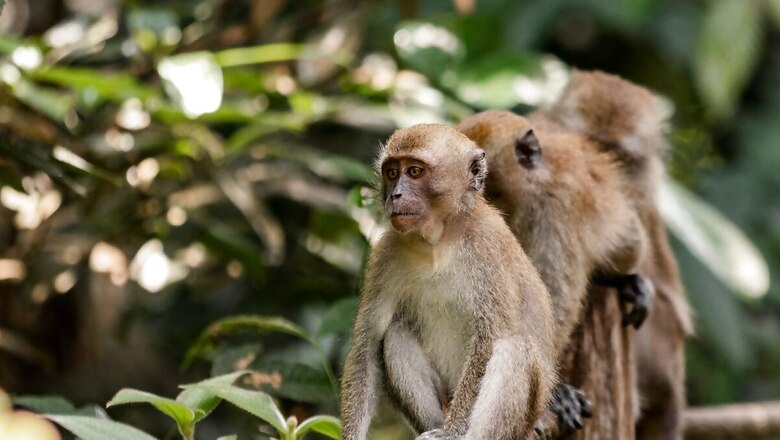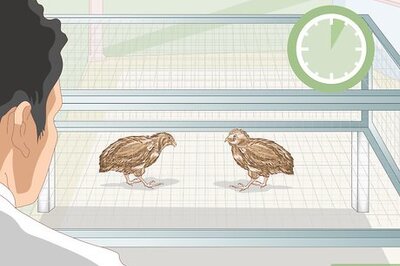
views
Residents of Bainbridge, a town in the US state of Georgia, are concerned as a company Safer Human Medicine is planning to build the country’s largest monkey-breeding facility for over 30,000 macaques – a species of monkey native to South Asia. They plan to build outfitted warehouses where these monkeys will roam freely. However, they have faced serious backlash from residents as well as animal rights groups.
The company plans to build a sprawling, 200-acre complex where these monkeys will be housed. They will then be sent out to universities and pharmaceutical companies for medical research. The plan is to assemble a mega-troop of 30,000 long-tailed macaques in these barn-like structures in Bainbridge, Georgia – a city of 14,000 people.
The simian metropolis will cost $396 million and the company has assured that these monkeys will be kept in highly secured conditions and measures will be taken to ensure they do not spread disease in the area. “We all depend on these critical primates to save the lives of our loved ones and ourselves,” the company said in an open letter to residents. The letter featured a picture showing monkeys happily playing with toys in a brightly lit room designed like an apartment.
The plan has been met with fierce opposition from some Bainbridge residents who told local authorities that they want the construction halted. “They’re an invasive species and 30,000 of them, we’d just be overrun with monkeys. I don’t think anybody would want 30,000 monkeys next door,” added David Barber, who would live just 400ft from the new facility,” Ted Lee, a local resident, was quoted as saying by The Guardian.
Kathleen Conlee, vice-president of animal research issues for the Humane Society, also demanded the plan be scrapped. She said breeding primates for medical tests is cruel and provides little benefit in coming up with new treatments for humans as both species are different.
“This move not only further threatens the survival of these primates in the wild, it perpetuates a cycle that we should be breaking away from. We urge local officials to reject the proposal to build this facility and the federal government to prioritise science that will ultimately save both human and animal lives,” Kathleen Conlee was quoted as saying by The Guardian.
Most medical tests on animals tend to involve rodents and only 1% requires primates. The practice on testing medicines on primates remains controversial and the National Institutes of Health said in 2015 it would no longer support biomedical research on chimpanzees.
However, at least 70,000 monkeys a year are still used across the US in tests for treatments to infectious diseases, ageing and neurological conditions and researchers recently warned that the country is running low on available primates for tests.
Safer Human Medicine argues that their facility would alleviate this issue and also create more than 260 local jobs to care for the new residents.
“There can often be a lot of misinformation surrounding animal research. Our goal is to provide the Bainbridge community with the facts and accurate information about our purpose and the new facility’s operations. We still believe Bainbridge is the right place for this project and we plan to move ahead with the facility’s plans based on the approvals and support we received at the project’s outset,” a spokeswoman for Safer Human Medicine said.




















Comments
0 comment